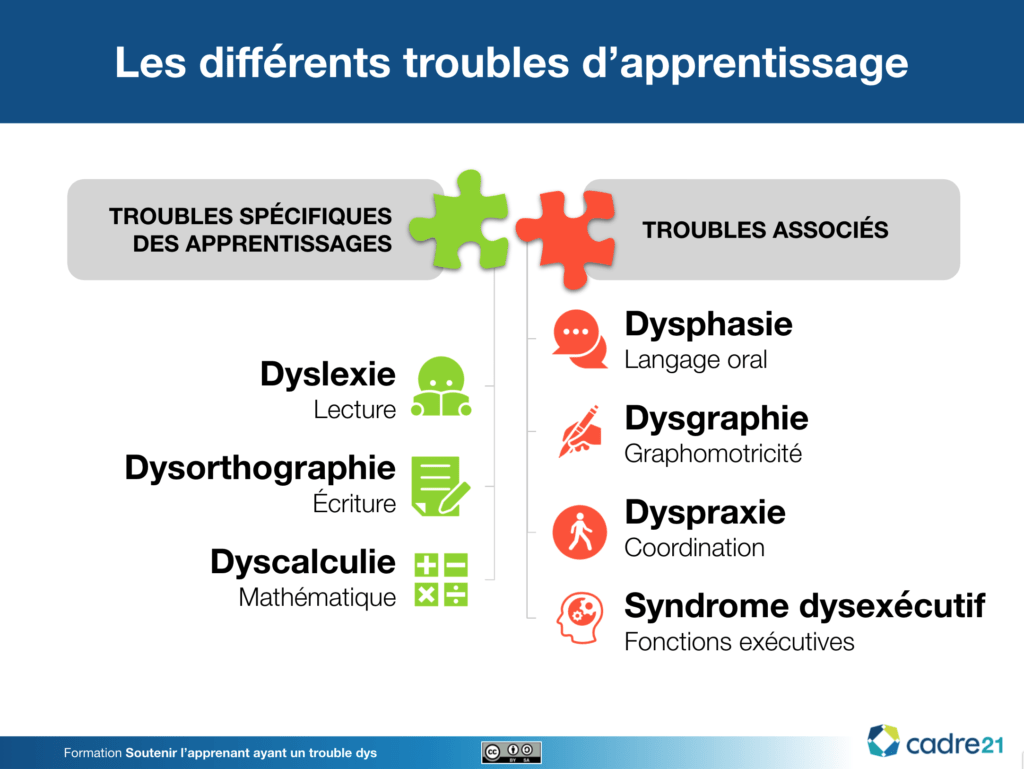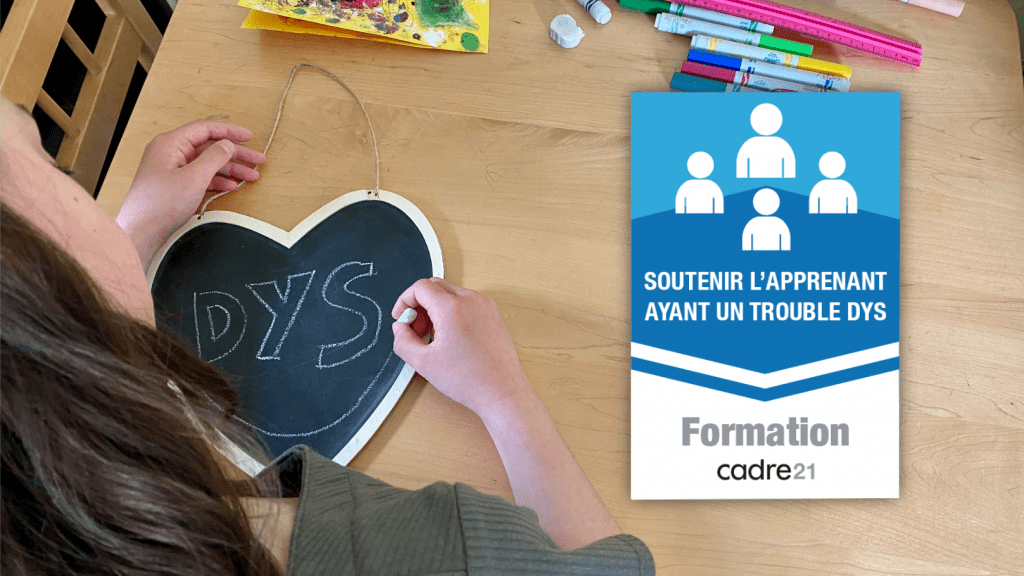Collaboration spéciale, CADRE21
Le CADRE21 offre depuis peu une toute nouvelle formation, Soutenir l’apprenant ayant un trouble dys, qui permettra aux acteurs de l’éducation de se familiariser avec cette dimension relative aux troubles d’apprentissage, afin de mieux soutenir les apprenants lors d’actions concertées dans le cadre scolaire.
Dans toutes les cultures, l’apprentissage est associé, à des degrés divers, à une notion de performance, de réussite scolaire. Le fait de rencontrer des difficultés représente un bouleversement autant auprès des apprenants qui les vivent, des parents soucieux de la réussite de leur enfant (Fourneret et Da Fonseca, 2018), que des enseignants qui devront accompagner ces jeunes. Or, quand on sait identifier ces troubles d’apprentissage, on peut adapter et appliquer une différenciation pédagogique pour favoriser la réussite de tous les apprenants.
Les troubles d’apprentissage dont il est surtout question dans la formation sont la dyslexie, la dysorthographie et la dyscalculie, mais ceux-ci ne sont généralement pas des troubles isolés. En effet, ils se présentent souvent en concomitance avec d’autres troubles dont les troubles des fonctions exécutives, une dysgraphie (graphomotricité), une dysphasie (langage oral), une dyspraxie (coordination) ou un trouble du déficit de l’attention avec ou sans hyperactivité (TDA/H) pour ne nommer que ceux-ci.

Comme les autres formations du CADRE21, la formation Soutenir l’apprenant ayant un trouble dys présente quatre niveaux d’intégration dans sa pratique, le premier permettant de prendre connaissance du sujet et le dernier de démontrer son leadership au sein de sa communauté d’apprentissage professionnelle.
Cette nouvelle formation a été développée en collaboration avec Hélène Forbes, détentrice d’un baccalauréat et d’une maîtrise en adaptation scolaire. Mme Forbes a œuvré comme orthopédagogue professionnelle, enseignante en adaptation scolaire, enseignante braille puis comme personne-ressource au service suprarégional de soutien et d’expertise en déficience visuelle (SSSEDV). Elle partage actuellement son expérience et ses connaissances avec les futurs enseignants comme chargée de cours en éducation à l’Université du Québec à Rimouski.
Le CADRE21 offre une rétroaction personnalisée à l’apprenant pour chacune de ses formations. Eugénie Pettigrew-Leydier, orthopédagogue et directrice de AIDEOR, agira comme responsable de la rétroaction pour tous ceux et celles qui feront la demande de badge numérique relié à la formation Soutenir l’apprenant ayant un trouble dys.
Pour plus d’informations, visitez le site Web du CADRE21.
Dimension(s) de la compétence numérique en lien avec cet article
9- Adopter une perspective de développement personnel et professionnel avec le numérique dans une posture d’autonomisation
Voir le Cadre de référence.







